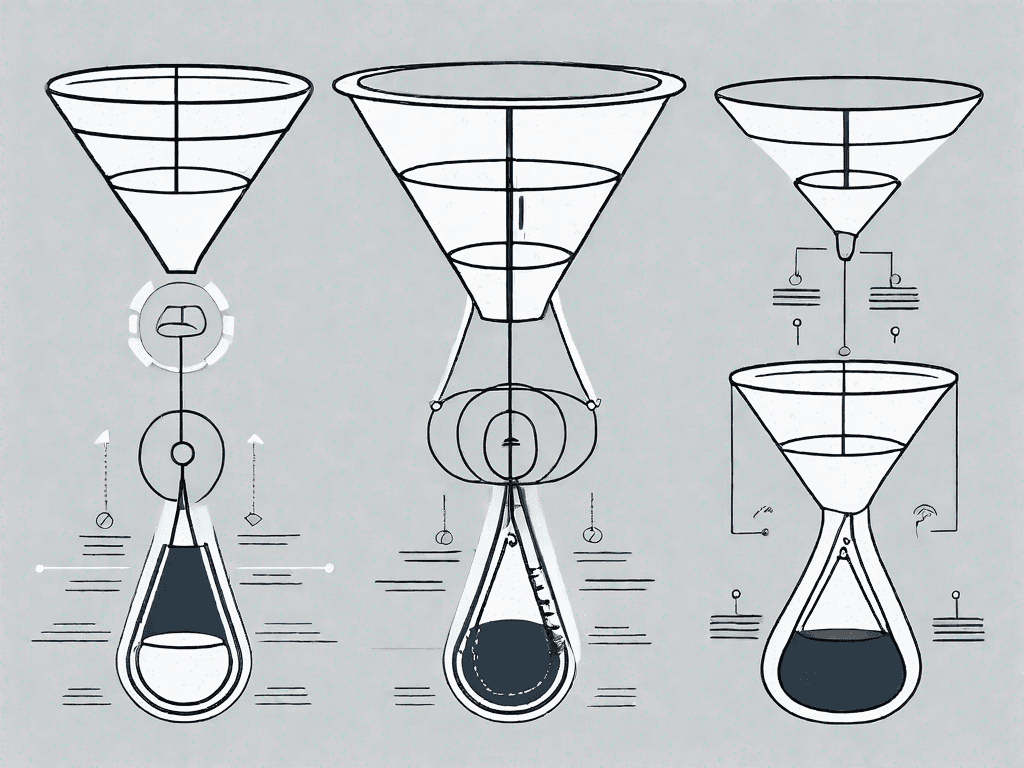
What is a Sales Qualified Lead (SQL)? (Explained With Examples)
In the world of sales and marketing, leads play a crucial role in driving revenue and business growth. However, not all leads are created equal. Some leads have a higher potential to convert into paying customers, while others may not be a good fit for the sales team to pursue. This is where the concept of a Sales Qualified Lead (SQL) comes in
What is a Sales Qualified Lead (SQL)?
A Sales Qualified Lead, often referred to as an SQL, is a lead that meets specific criteria and has shown a higher level of engagement and interest in a product or service. Unlike Marketing Qualified Leads (MQLs), which are typically determined by marketing efforts, SQLs are evaluated based on their readiness and likelihood to make a purchase.
Definition of Sales Qualified Lead
While the definition of an SQL may vary depending on the organization and industry, it generally involves a combination of factors. These factors typically include demographic information, firmographic data, engagement level, and the lead's actions or behaviors indicating their intent to purchase.
For example, an SQL might be someone who has visited a pricing page, downloaded a product brochure, or completed a specific call-to-action on a website. It's important to note that the criteria for qualifying an SQL can be customized to align with the organization's unique sales process and target audience.
Furthermore, the process of identifying SQLs often involves a collaborative effort between the sales and marketing teams. By analyzing data and leveraging customer relationship management (CRM) systems, organizations can establish a comprehensive framework for evaluating and categorizing leads.
In addition to the aforementioned criteria, some organizations may also consider the lead's budget, timeline, and decision-making authority as essential factors in determining their qualification as an SQL. By taking these additional variables into account, sales teams can gain a deeper understanding of the lead's potential value and tailor their approach accordingly.
Advantages of Sales Qualified Lead
Efficient Sales Process: By focusing on SQLs, sales teams can prioritize their efforts on leads that are more likely to convert. This helps in optimizing the sales process and maximizing sales productivity.
Improved Conversion Rates: Since SQLs have already shown an interest in the product or service, they have a higher chance of converting into paying customers. This can lead to improved conversion rates and higher revenue.
Enhanced Sales-Marketing Alignment: Defining SQL criteria promotes a better alignment between sales and marketing teams. With a shared understanding of what qualifies as an SQL, these teams can work together to generate and nurture leads effectively.
Moreover, the alignment between sales and marketing teams is crucial for the success of any organization. By establishing clear communication channels and sharing insights, both teams can collaborate on developing targeted marketing campaigns and personalized sales strategies that resonate with SQLs.
Furthermore, the collaboration between sales and marketing teams can also lead to the development of comprehensive lead nurturing programs. By leveraging marketing automation tools and CRM systems, organizations can implement automated workflows that deliver relevant content and personalized interactions to SQLs, further increasing their chances of conversion.
Disadvantages of Sales Qualified Lead
Potential for Missed Opportunities: Focusing solely on SQLs may result in missing out on potential leads that are not yet ready to make a purchase. These leads may require further nurturing or education before converting into SQLs.
Subjectivity in Qualification: Determining whether a lead meets the SQL criteria can be subjective, and different sales professionals may have different interpretations. This can lead to inconsistencies in the qualification process.
End-to-End Tracking: Tracking the end-to-end journey of an SQL, from lead generation to conversion, can be challenging. It requires robust tracking systems and integration between sales and marketing platforms.
Moreover, tracking the entire customer journey is essential for measuring the effectiveness of the SQL qualification process. Organizations need to implement robust analytics tools and integrate their CRM and marketing automation platforms to gain insights into the lead's interactions and behaviors throughout the sales funnel.
By tracking the complete customer journey, organizations can identify potential bottlenecks, optimize their sales and marketing strategies, and continuously improve their SQL qualification process.
Examples of Sales Qualified Lead
Now, let's explore some examples to better understand how SQLs can be identified and utilized in different contexts.
Example in a Startup Context
In a startup context, an SQL could be a lead that has signed up for a free trial of the product, completed a demo session, and has shared their budgetary constraints or timeline for making a purchase decision.
Imagine a scenario where a startup has developed a cutting-edge software solution for project management. They offer a free trial to potential customers, allowing them to experience the product firsthand. In this context, an SQL would be a lead who not only signs up for the free trial but also takes the time to complete a demo session with a sales representative. During this session, the lead expresses their budgetary constraints or timeline for making a purchase decision, indicating a higher level of interest and potential for conversion.
Example in a Consulting Context
In the consulting industry, an SQL might be a lead that has attended a webinar, participated in a workshop, and has requested a proposal tailored to their specific business needs.
Consider a consulting firm that specializes in providing strategic marketing solutions to businesses. They regularly host webinars and workshops to educate potential clients about the latest marketing trends and strategies. In this context, an SQL would be a lead who not only attends these educational events but also actively engages by asking questions and participating in discussions. Furthermore, an SQL would also take the initiative to request a proposal that is tailored to their specific business needs, indicating a strong intent to explore a potential partnership.
Example in a Digital Marketing Agency Context
For a digital marketing agency, an SQL could be a lead that has engaged with multiple gated content pieces, such as e-books or whitepapers, filled out a contact form, and has expressed the need for a personalized marketing strategy.
Imagine a digital marketing agency that offers valuable resources, such as e-books and whitepapers, to educate potential clients about the latest digital marketing tactics and strategies. In this context, an SQL would be a lead who not only engages with multiple gated content pieces by downloading them but also takes the extra step of filling out a contact form. Additionally, an SQL would express the need for a personalized marketing strategy, indicating a higher level of interest in exploring the agency's services.
Example with Analogies
To illustrate the concept of an SQL, let's consider an analogy. Suppose you are hosting a dinner party, and you receive RSVPs from guests who express a strong preference for the cuisine, ask detailed questions about the menu, and inquire about dietary restrictions. These guests can be considered as SQLs because they have demonstrated a higher level of interest and intent to attend the party.
Imagine you are hosting a dinner party with a specific theme, such as a Mexican fiesta. You send out invitations to your friends and receive RSVPs from guests who not only express a strong preference for Mexican cuisine but also ask detailed questions about the menu, such as the types of tacos or margaritas that will be served. Furthermore, these guests inquire about dietary restrictions, indicating their genuine interest in attending and enjoying the party to the fullest. In this analogy, these guests can be considered as SQLs because they have demonstrated a higher level of interest and intent to attend the party, just like how an SQL demonstrates a higher likelihood of converting into a paying customer.
In conclusion, a Sales Qualified Lead (SQL) represents a lead that meets specific criteria and shows a higher likelihood of converting into a paying customer. By identifying and prioritizing SQLs, businesses can optimize their sales process, improve conversion rates, and achieve better alignment between sales and marketing efforts.











































































































































































































